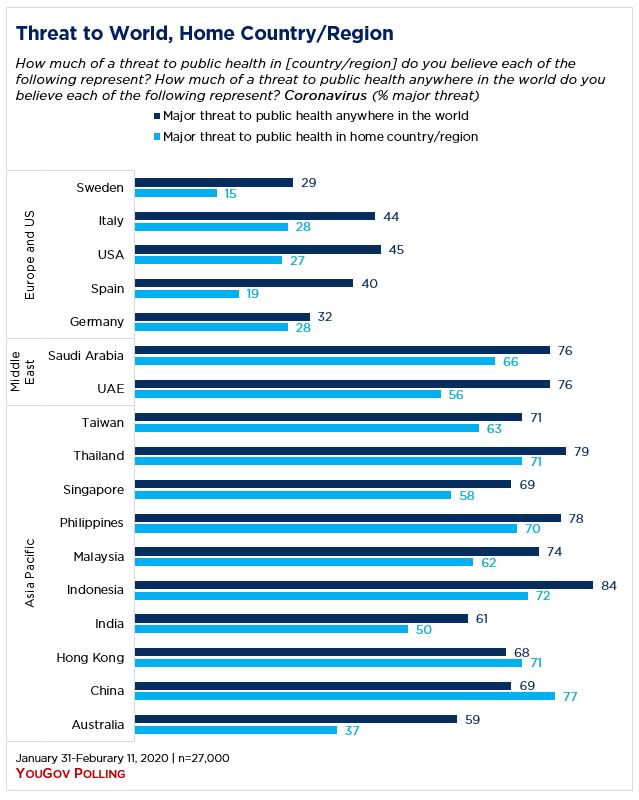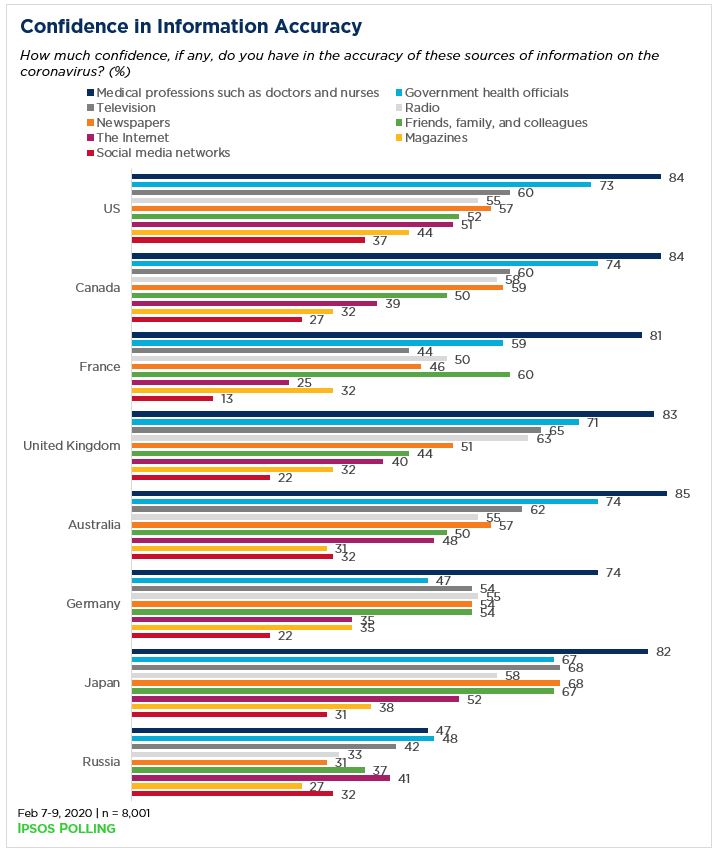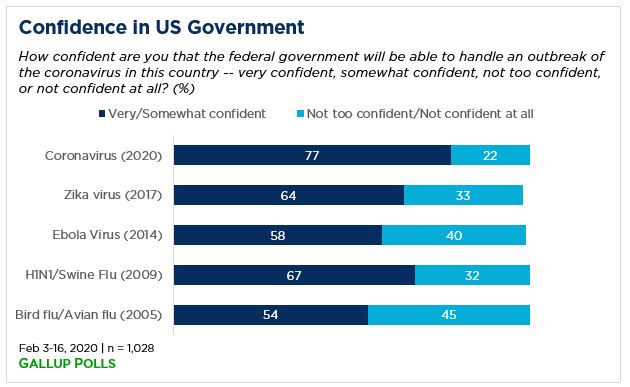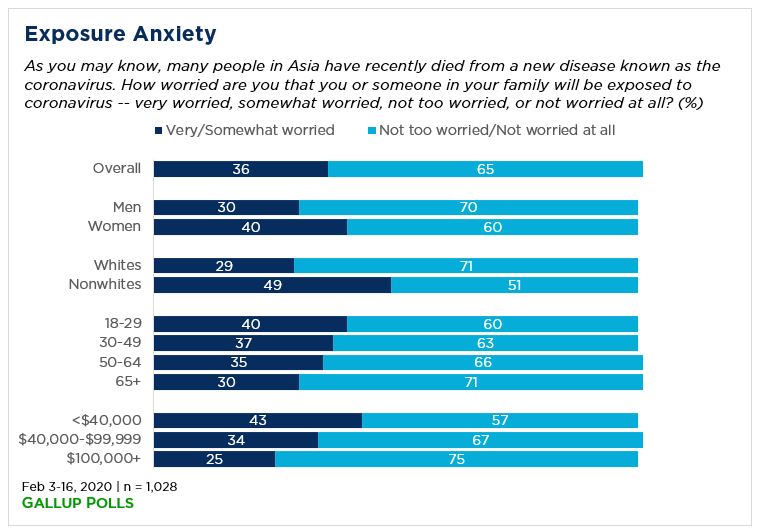Coronavirus Concern: Threat Perceptions Around the World

Amid growing anxiety among experts and health officials, how do publics in countries around the world perceive the threat of the novel coronavirus?
Introduction
Experts now say the world is approaching a tipping point regarding COVID-19, the novel coronavirus first identified in Wuhan, and the World Health Organization is warning that the international community should prepare for a pandemic as cases outside of China have grown. Amid growing anxiety among experts and health officials, how do publics in countries around the world perceive the threat of the novel coronavirus?
Global Perceptions
International polling conducted by YouGov shows that large numbers of citizens around the world see the coronavirus as a global threat, but most are less likely to view it as a threat in their own countries. This difference is especially pronounced in Europe and the US. For example, while 44 percent of Italians say the virus poses a major threat to “public health anywhere in the world,” (the highest percentage of any European country), only 28 percent say the virus is a major threat to their country or region. In the United States, views take a similar pattern (45% threat anywhere, 27% local threat) However, if the number of cases detected in European countries like Italy continue to spike, Europeans might begin to see the virus as a greater national threat. Meanwhile, publics in the Middle East and Asia Pacific are considerably more concerned than Europeans and Americans about the global threat posed by the coronavirus. Though China and Hong Kong curiously are not the most likely to say the coronavirus is a major global threat, Chinese and Hong Kong citizens both see the disease as a larger threat nationally/regionally (77% and 71% major threat, respectively).

It's possible that the perceived threat levels of the coronavirus are influenced by the types of sources publics around the world trust to deliver accurate information on the new disease. In all the countries surveyed by Ipsos in early February, individuals were the most likely to say they have a great deal or fair amount of confidence in information from medical professionals, and, with the exception of Russia (who uniquely distrusts all sources of information about the virus), were least likely to say they have confidence in information from social media. This could indicate that individuals are listening to health officials’ calls for calm and ignoring misinformation about the virus spread on social media.

American Perceptions
Though the US has only experienced 53 total confirmed cases of the coronavirus as of the publishing of this piece, the public is nevertheless on alert. To date, only two cases of person-to-person transmission have occurred in the US, but officials from the Centers for Disease Control and Prevention have warned that virus will almost inevitably spread in the United States and have urged communities to prepare for this likely possibility. According to a Marist poll conducted earlier this month, two-thirds (66%) of Americans believe the coronavirus is a real threat, compared to just 27 percent who say it is blown out of proportion. However, trust in the US government’s ability to handle the outbreak is high. According to a February 20 Gallup poll, 77 percent of Americans are very or somewhat confident that the federal government will be able to handle an outbreak of coronavirus in the US. This number is high when compared to other recent outbreaks, such as the Zika virus in 2017 (64% confidence), the Ebola virus in 2014 (58% confidence), the Swine flu in 2009 (67% confidence), and the Avian flu in 2005 (54% confidence). More concerning to Americans may be the impact the virus has on the global economy. Two-thirds (66%) of Americans foresee negative effects on the world economy, and of those respondents, half (49%) say it will have a somewhat negative effect, while 16 percent say it will have a very negative effect. Meanwhile, businesses such as Apple have already signaled that they’re bracing for impact, and the US markets sunk in late February in response to outbreaks in Italy, South Korea, and Iran.

According to the same poll, Americans are generally not too concerned that they themselves or family members will be exposed to the coronavirus. Just a third (36%) are very or somewhat worried, a number comparable to the SARS outbreak in 2003 (37%). Levels of anxiety do, however, vary by demographic. More women (40%) are very or somewhat worried about exposure than men (30%), as are nonwhites (49%) than whites (29%), and low-income households (43%) than the middle (34%) and high-income households (25%).

For the latest information on the COVID-19 coronavirus from the US Centers for Disease Control and Prevention, please visit their website.

